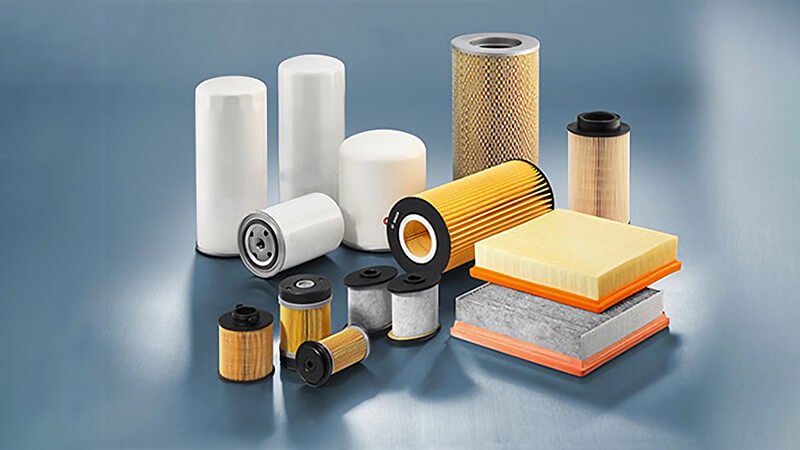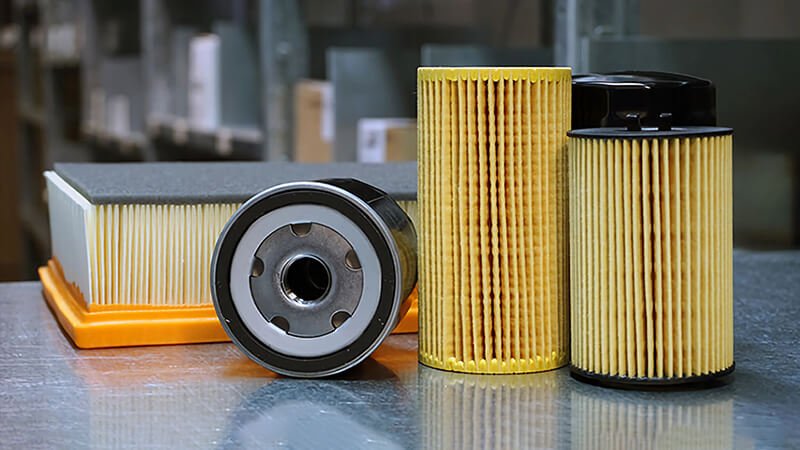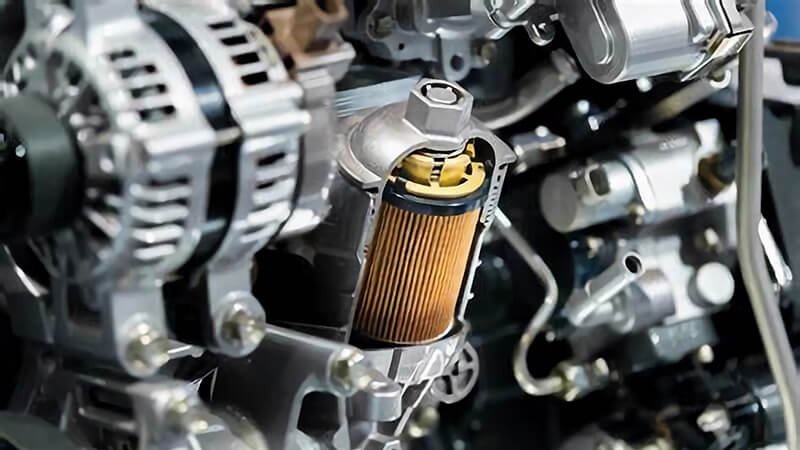Choosing the right oil and oil filter for your car is crucial for its performance and longevity. The oil filter plays a vital role in keeping your engine clean and functioning properly. Let's explore how to pick the correct oil filter and oil for your vehicle to ensure optimal performance.
Choosing the correct oil and oil filter is key to your car's engine health. A high-quality oil filter removes impurities from the engine oil, preventing damage and ensuring the engine runs smoothly. Understanding the types of oil and filters is essential for keeping your car in top condition.
Before we dive into the specifics, it’s essential to understand the purpose of oil filters. The right oil filter ensures that the engine oil is cleaned, helping the engine run smoothly, reducing wear, and preventing engine damage. Let’s look deeper into the types of oil filters and oils that will best protect your vehicle.

How do I know what kind of oil filter my car needs?
When it comes to choosing the right oil filter, the task might seem overwhelming. However, understanding your car’s specifications, including the make, model, engine type, and oil system, can guide you in selecting the right filter.
To know what oil filter your car needs, you must consider factors like the make and model of your car, engine size, and the type of oil you're using. Using the right oil filter prevents impurities from damaging your engine and ensures efficient oil flow.
When selecting an oil filter1, the key factor is compatibility with your vehicle. Oil filters are designed to match specific engine oil systems based on the engine's size and oil type. If you choose an incompatible filter, it may affect the oil flow and filtration efficiency, leading to damage over time.
Key Factors to Consider When Choosing an Oil Filter
| Factor | Details |
|---|---|
| Vehicle Make & Model | Always refer to the vehicle manufacturer’s specifications to ensure you select a filter designed for your engine type. |
| Engine Size | Larger engines may require filters with higher capacity to handle more oil, while smaller engines need more compact filters. |
| Oil Type | Full synthetic oils may require high-efficiency filters to handle the finer particles they collect, compared to conventional oils. |
| Filter Design | Consider whether your engine requires a full-flow filter or bypass filter. Full-flow filters handle all oil, while bypass filters clean only a portion. |
Choosing an oil filter that matches these factors ensures efficient oil circulation and prevents contaminants from harming your engine components. If you’re unsure, always consult your vehicle’s manual or an automotive professional.
Another important aspect to consider is the filter's micron rating2, which tells you how effective the filter is at trapping small particles. A lower micron rating means better filtration, but it could also cause higher resistance, which could affect oil flow, particularly in older engines.

How do I know what oil to put in my car?
Choosing the right oil is just as critical as selecting the right oil filter. The oil you use plays a significant role in engine protection, fuel efficiency, and overall engine health.
To choose the right oil for your car, consider factors such as your vehicle’s manufacturer recommendations, driving conditions, and the climate in which you live. Using the right type of oil ensures the engine stays clean and lubricated, reducing wear and tear.
When selecting the appropriate oil for your car, the first step is to follow the manufacturer’s recommendations. The vehicle manual typically provides detailed information about the required oil type, including the viscosity grade3 (e.g., 5W-30) and whether synthetic or conventional oil should be used. Choosing the wrong oil can lead to poor engine performance and even serious damage.
Types of Engine Oil
| Oil Type | Description | Pros | Cons |
|---|---|---|---|
| Synthetic Oil4 | Highly refined oil with fewer impurities, providing superior performance, especially in extreme temperatures. | Better engine protection, longer intervals between changes | Higher cost |
| Conventional Oil | The most common oil type, made from refined crude oil. | Cost-effective, adequate for most vehicles | Requires more frequent changes, less performance at extreme temps |
| High-Mileage Oil5 | Specially formulated for older vehicles with over 75,000 miles, containing additives that help restore seals. | Helps prevent leaks, improves engine efficiency | Not necessary for newer cars |
| Synthetic Blend | A mixture of synthetic and conventional oil, offering a balance of cost and performance. | Better protection than conventional oil, cheaper than full synthetic | More expensive than conventional oil |
In addition to choosing the right oil type, consider the climate in which you live. If you drive in extreme cold or hot conditions, synthetic oils typically perform better, as they maintain better viscosity across a wide temperature range. They also offer superior protection against sludge buildup, ensuring cleaner engine parts.
Finally, regular oil changes are essential, regardless of the oil type. Even the best oils degrade over time, so it’s important to change your oil at the recommended intervals to maintain engine health.

What are the 4 types of car filters?
Car filters are integral to ensuring that your vehicle operates efficiently. In addition to the oil filter, there are several other filters that contribute to your vehicle’s health. Understanding these filters and their functions is crucial for proper maintenance.
There are four main types of car filters: oil filters, air filters, cabin filters, and fuel filters. Each filter serves a specific role in maintaining the performance and efficiency of your vehicle, ensuring that various systems operate smoothly.
Each type of filter in your car serves a distinct purpose, and ensuring they’re all in good condition is vital to keeping your vehicle running efficiently. Let’s take a closer look at the four types of filters and their functions:
-
Oil Filters6: The oil filter’s job is to remove dirt, metal particles, and other contaminants from the engine oil. The oil filter helps keep the engine oil clean and ensures that oil can circulate freely through the engine to lubricate the moving parts. A clogged or ineffective oil filter can lead to poor engine performance and, in severe cases, engine failure.
-
Air Filters7: The air filter ensures that the engine only receives clean air for combustion. Air filters trap dirt, bugs, and other debris before they enter the engine, preventing them from causing damage. A clogged air filter can reduce fuel efficiency, cause engine misfires, and increase emissions.
-
Cabin Filters8: Cabin filters clean the air that enters the vehicle's cabin, protecting you and your passengers from dust, pollen, and other airborne contaminants. Regularly replacing cabin filters ensures a clean and healthy driving environment. A clogged cabin filter can cause poor air circulation and unpleasant odors inside the car.
-
Fuel Filters: Fuel filters prevent dirt, rust, and other contaminants from entering the engine's fuel system. These filters ensure that the fuel your car uses is clean, preventing blockages and damage to the fuel injectors. A clogged fuel filter can lead to poor engine performance, misfires, and difficulty starting the vehicle.
Comparison of Car Filters
| Filter Type | Function | Consequence of Clogging |
|---|---|---|
| Oil Filter | Removes contaminants from engine oil, preventing engine wear. | Poor lubrication, engine overheating, damage to engine components |
| Air Filter | Filters the air entering the engine for combustion. | Reduced fuel efficiency, engine misfires, increased emissions |
| Cabin Filter | Cleans the air entering the vehicle’s cabin. | Poor air quality inside the car, discomfort for passengers, allergens |
| Fuel Filter | Removes dirt and impurities from fuel before it enters the engine. | Poor engine performance, difficulty starting, engine misfires, fuel system damage |
Regularly changing all four of these filters is essential to keeping your car running smoothly. By maintaining clean filters, you ensure that your engine operates efficiently, your cabin remains comfortable, and your fuel system is protected.

Does it matter what oil filter I get for my car?
Yes, the type of oil filter you choose for your car matters significantly. Choosing the wrong filter can affect oil flow, cause engine damage, and reduce fuel efficiency. Here's why selecting the correct oil filter is crucial for your vehicle’s health.
Selecting the right oil filter is crucial to your car’s performance. A poor filter can lead to reduced oil flow, engine damage, and even higher fuel consumption. Make sure to choose a filter that fits your vehicle’s specifications for optimal performance.
The oil filter plays a vital role in keeping your car’s engine clean. Its primary purpose is to remove contaminants from the engine oil, preventing them from damaging engine components. However, not all oil filter9s are created equal. Using a low-quality or incorrect filter can lead to serious issues:
-
Improper Filtration: A poor filter may fail to capture all contaminants, such as dirt and metal particles, allowing them to circulate in the engine and cause wear and tear.
-
Clogging and Reduced Oil Flow: If the oil filter becomes clogged, it can reduce oil flow to the engine, leading to inadequate lubrication and potential engine overheating.
-
Increased Fuel Consumption: A clogged or inefficient oil filter can increase fuel consumption10, as the engine has to work harder to circulate oil. This can result in decreased fuel efficiency and increased operating costs.
-
Premature Engine Wear: Over time, using the wrong oil filter can cause premature wear on vital engine components, leading to costly repairs or even engine failure.
To avoid these issues, always select an oil filter that is compatible with your car’s engine and oil system. Choosing a high-quality filter ensures that the engine oil is properly cleaned, keeping the engine running smoothly and efficiently.

Conclusion
Choosing the right oil and oil filter is essential for keeping your car’s engine in optimal condition. Make sure to always choose an oil filter that matches your car's specifications, as this ensures proper filtration, better engine performance, and longer life. Regular maintenance of both the oil and oil filter will help keep your vehicle running smoothly for years to come. Do not hesitate to contact us to get your best oil filter11 and solutions.
-
Exploring this link will help you find the most compatible oil filter options tailored to your vehicle's needs. ↩
-
Understanding micron ratings can enhance your knowledge of oil filter efficiency and help you make informed choices. ↩
-
Understanding viscosity grade is crucial for selecting the right oil for your vehicle, ensuring optimal performance and protection. ↩
-
Exploring the benefits of synthetic oil can help you make an informed decision for your vehicle's engine health and performance. ↩
-
Learn about high-mileage oil to determine if it's the right choice for your older vehicle, enhancing its longevity and efficiency. ↩
-
Explore the importance of high-quality oil filters to enhance engine performance and longevity. ↩
-
Learn about the frequency of air filter replacement to maintain fuel efficiency and engine health. ↩
-
Discover how clean cabin filters improve air quality and comfort for you and your passengers. ↩
-
Understanding the significance of a quality oil filter can help you maintain your vehicle's engine health and performance. ↩
-
Discover how an efficient oil filter can improve fuel efficiency, reducing your overall fuel costs and environmental impact. ↩
-
Try to get more details and infomations of Oil Filter from Runex Auto. ↩













